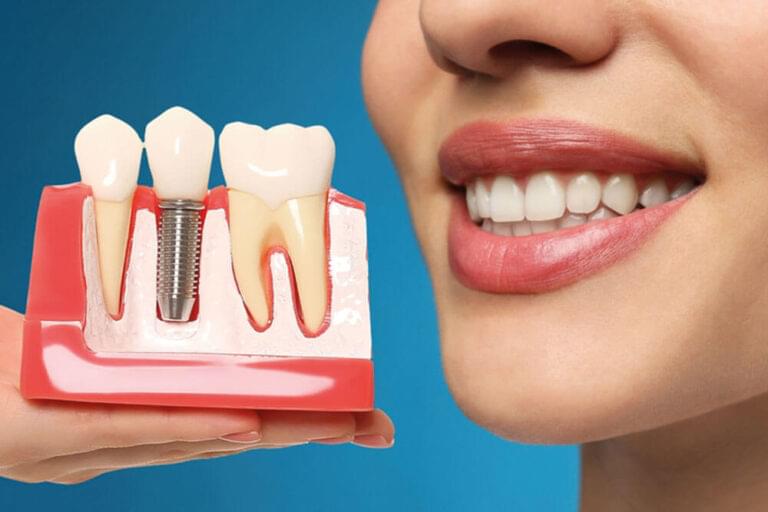

If you have an upcoming dental implant procedure, you might be wondering: Do dental implants hurt? It’s completely normal to feel nervous about any type of dental work, especially if you’re not sure what to expect. The good news is that modern dental techniques and anesthesia make the process much more comfortable than many people imagine. In this article, we’ll break down each stage of the procedure, what kind of discomfort (if any) you might experience, and how to manage recovery effectively.
Dental implants are a long-term solution for replacing missing teeth. The procedure involves placing a small titanium post into your jawbone, which serves as the foundation for a custom-made crown that looks and functions like a natural tooth. While this might sound complex, advancements in dental technology have made the procedure highly efficient and minimally invasive.
So, do dental implants hurt? Let’s go step by step to see what you can expect.
One of the biggest concerns patients have is pain during surgery. The truth is that you won’t feel any pain during the procedure because your dentist will use local anesthesia to numb the area. In some cases, sedation options such as IV sedation or nitrous oxide (laughing gas) may also be available to help you relax.
Most patients describe feeling pressure or mild sensations but not pain. The numbing process is similar to that of having a tooth extracted or a deep filling. Do dental implants hurt during surgery? No, thanks to anesthesia and modern techniques, discomfort is minimal.
Once the anesthesia wears off, you may experience some soreness and swelling, which is completely normal. The level of discomfort varies from person to person, but here’s a general timeline of what you can expect:
The First 24 Hours
The First Few Days
One Week Later
Even though dental implants do not hurt during the procedure, managing post-surgery discomfort is important for a smooth and stress-free recovery. Here are some helpful strategies to keep pain and swelling under control:
Your dentist will provide specific guidelines on pain management, diet, and oral hygiene. Following these instructions is crucial as they promote healing and prevent complications. Ignoring post-op care can increase discomfort and prolong recovery. If anything seems unclear, don’t hesitate to reach out to your dentist for clarification.
Most patients find that over-the-counter pain relievers like ibuprofen or acetaminophen effectively manage discomfort. However, if your dentist prescribes medication, take it exactly as directed. Avoid exceeding the recommended dosage, as overuse of painkillers can lead to unwanted side effects. If pain persists beyond what is expected, let your dentist know—they may adjust your treatment plan to keep you comfortable.
Swelling is a natural part of the healing process, but you can minimize it by applying ice packs to the outside of your cheek near the implant site. Use a clean towel or cloth to wrap the ice pack and apply it for 15-minute intervals, with breaks in between, to avoid skin irritation. The sooner you start icing (within the first 24 hours), the more effective it will be in reducing inflammation.
Your mouth will be sensitive for the first few days, so stick to soft, easy-to-chew foods. Mashed potatoes, yogurt, applesauce, smoothies, and soup are excellent choices that won’t irritate the implant site. Avoid hot foods or beverages immediately after surgery, as they can increase swelling. Gradually reintroduce firmer foods as your comfort level improves, but steer clear of anything too crunchy or sticky for at least a week.
Both smoking and alcohol can significantly delay healing. Smoking restricts blood flow to the gums, increasing the risk of infection and implant failure. Alcohol, on the other hand, can interfere with medications and dry out the mouth, making recovery more uncomfortable. If you smoke, consider using this as an opportunity to cut back or quit entirely—your dental implants (and overall health) will thank you.
For most patients, discomfort is mild and lasts only a few days. Some people may feel slight soreness for up to two weeks, especially if they had multiple implants placed. However, if you’re still experiencing significant pain after two weeks, it’s a good idea to check in with your dentist.
So, do dental implants hurt in the long term? No, once your mouth heals, you shouldn’t feel any pain. In fact, most patients say their implants feel just like natural teeth after everything is said and done.
To give you some perspective, here’s how the pain level of getting a dental implant compares to other common dental procedures:
Most patients report that getting an implant is easier than they expected. Do dental implants hurt? Less than many other dental treatments!
There are plenty of misconceptions about dental implant pain. Let’s set the record straight by debunking some common myths.
Myth: The surgery is extremely painful.
Fact: The procedure is performed under local anesthesia, so you won’t feel pain during surgery. Many patients compare it to getting a filling or extraction.
Myth: Recovery is long and unbearable.
Fact: Most discomfort fades within a few days, and many patients return to normal activities within a week. Pain is manageable with over-the-counter medication.
Myth: The implant will always cause pain or discomfort.
Fact: Once healed, a dental implant should feel like a natural tooth. If pain persists after healing, it may indicate an issue that your dentist can address.
Myth: Getting multiple implants is more painful.
Fact: While having multiple implants may extend healing time, the procedure itself is still pain-free due to anesthesia. Recovery can be managed with the same pain relief methods as a single implant.
By separating fact from fiction, you can feel more confident about your upcoming procedure. Do dental implants hurt? Not nearly as much as the myths suggest!
While mild discomfort is expected, there are a few signs that you should contact your dentist:
If you’re worried and wondering, “Do dental implants hurt?” the simple answer is no—at least not in the way you might expect. The procedure itself is painless, and any discomfort afterward is manageable with proper care.
For many patients, the benefits of dental implants far outweigh the short-term recovery period. Unlike dentures or bridges, implants provide a natural look and feel without the hassle of adhesives or dietary restrictions.
If you have an upcoming procedure, rest assured that your dentist will do everything possible to keep you comfortable. And if you have any concerns, don’t hesitate to ask questions—understanding the process can help ease your nerves.
Looking for more information? Contact your dental provider today to discuss any lingering concerns and ensure a smooth, stress-free experience.
Total Freedom is a custom solution and one of the most well recognized dental implants providers in Scottsdale and Phoenix.
We’re about providing the treatment that best fits you. That could mean a full set of new teeth. It could mean fewer implants than you anticipated. It could mean you don’t require any implants at all. When we can save the teeth you have, that’s what we recommend.
People travel from all over the country to Arizona for consultations and treatment with Dr. Kaiser. It’s unquestionably worth the trip.
Whether you’re seeking a first or second opinion, or even if you decide to choose another dental provider, a consultation with Dr. Kaiser will provide you with invaluable insights into your unique dental situation and the available options. You won’t be disappointed.
info@totalfreedomdental.com
Both dental implants and dentures have their pros and cons. And both dentures and dental implants have come a long way in the past 10
What Dental Implants Look Like: A Complete Guide to Natural Smiles Have you ever asked yourself, what do dental implants look like once treatment ends?
How Much Do Dental Implants Cost? Worrying about price is normal. It’s like standing in an auto repair shop after hearing a strange engine noise:

